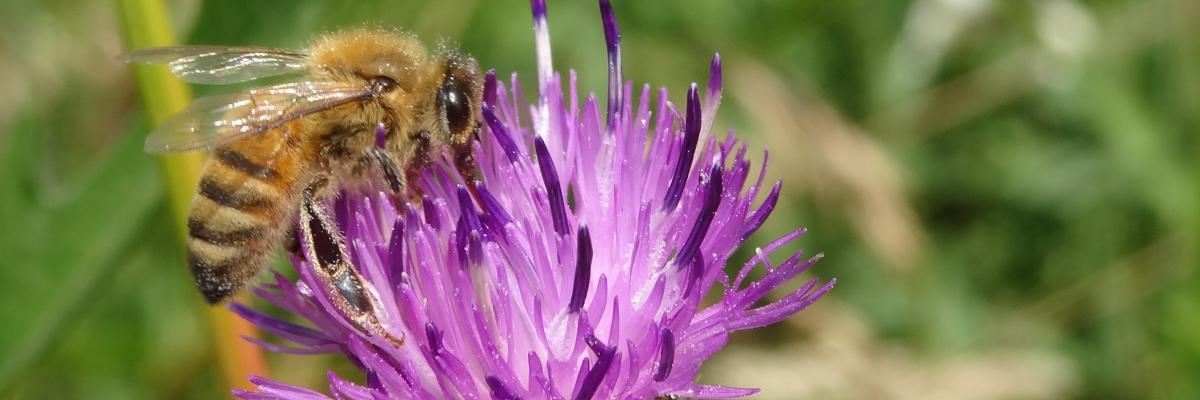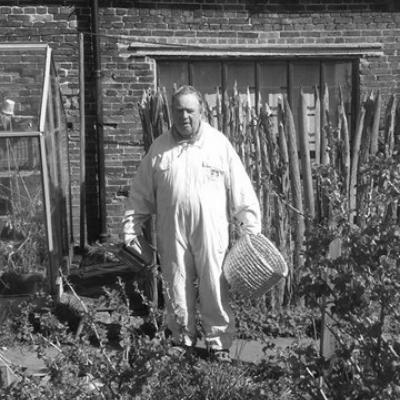
Allowing bees to 'be' - Reflections of a bee keeper...
25 August 2021
I am a beekeeper in Derbyshire with six apiaries on six farms (totalling over 40 hives). They include 20 acres of apple orchard, 120 acres of field beans and, this year, a local farmer specifically planted 8 acres of phacelia for the bees. My bees mostly forage around the local villages here.
It was always my intention to follow the conventional way of beekeeping which means treating for the varroa mite and checking them very frequently. In fact, for one year, I did follow all the rules. But, be it fate or tragedy, in 2013 the cancer which I first had in 2007 returned with a vengeance. I had to have 300 hours of chemotherapy in 2 months, after which I had to have a stem cell transplant. It was at this time that the doctor told me I would no longer have any immunity to bee stings and should think about giving up beekeeping.
Being stubborn by nature, I still kept on putting on more supers* on my hives and collecting more swarms. After some really nasty reactions to stings I realised that I was frightened of going into my beehives. One day, when I was walking through the local church yard, I noticed some feral bees in the tower. Watching the bees, a thought struck me: they didn't have any treatments for varroa mites or anyone checking them every day. So, if they didn't need them, maybe mine didn't either. This was the answer to my prayers. I really didn't have to give up my bees, all I had to do was leave them alone and stop treating them.
That was 8 years ago and I still do not treat them. I let my bees have a very natural life. Unlike a lot of beekeepers, I don't mark the queens, clip their wings or kill and replace them just because they're old. In fact, I don't see my bees from one year to the next - all I do is put the supers on and take them off when they are full of honey. I do keep an eye on the entrances of the hives; I know that if there are bees around it, all is well. If there is pollen going into the hive I know there is a brood and there should be a queen. In winter we may occasionally have to feed the weaker bees.

I know that a few beekeepers with smaller numbers of hives keep their bees in a similar way to me, but I don't know any larger beekeepers operating this way. A few years ago, I started to use ley lines to site my hives and swarm boxes, which I have found rather useful. I now have 70 hives.
The only research I know of on varroa in the UK is by Isobel Grindrod and Stephen J Martin of Salford University. Their conclusion was that there are areas in the UK where the bees are capable of controlling the varroa mite. My opinion is that knowledge comes from feral bees and is passed on to the bees. Just lately I have read of a report that someone testing beeswax found that the wax coming from bees treated for varroa still contained the toxin in it.

I have just had the Bee Inspector round my bees and she only found a few mites - two in over 40 hives. I was a little nervous when she came this time as we were going to look at a hive that has a tendency to sting people... I thought I had better warn her and of course they were as good as gold!
Lastly, if anyone tells you that wild bees don't survive very long, we have one (colony of bees?) that has lived in a chimney for 7 years that we will not be exterminating as, in most years, it pays its rent with a very good swarm that we move to populate a new hive...
John Crocker
* boxes used to collect honey


